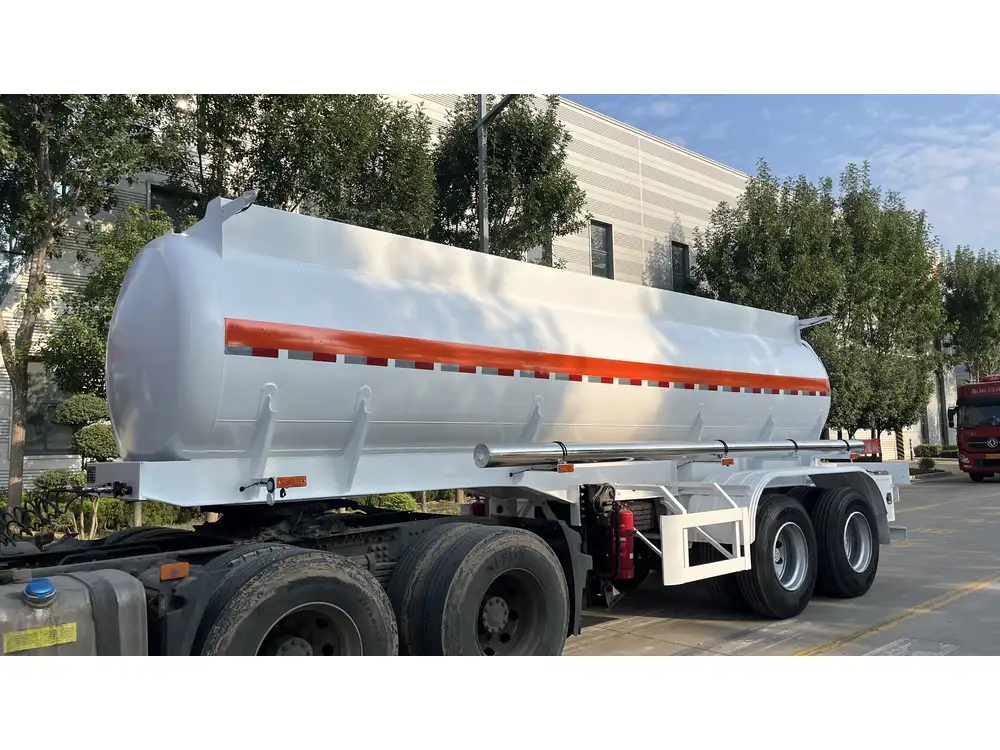In the realm of heavy-duty transportation, the maintenance of 18 wheelers stands as a critical pillar supporting safety, efficiency, and longevity. This guide delves deeply into the nuances of oil changes specifically for 18 wheelers and explores what the market in Tunisia has to offer, particularly our products at CarMax Vehicle.
Understanding the Importance of Oil Changes
Oil changes are not just routine tasks; they are pivotal in ensuring the optimal performance of an 18 wheeler. They prevent engine wear and tear, enhance fuel efficiency, and contribute to compliance with environmental regulations. Understanding the vital role oil plays in your vehicle encompasses several key aspects:
| Aspect | Details |
|---|---|
| Engine Lubrication | Oil reduces friction between moving components, protecting the engine. |
| Heat Dissipation | High-quality oil helps to absorb and dissipate heat generated during operation. |
| Contaminant Removal | Change oil regularly to remove dirt, metal particles, and sludge. |
| Extended Engine Life | Consistent oil changes lead to longer-lasting engines, which means fewer repairs. |
| Fuel Efficiency | A well-maintained engine operates more efficiently, improving fuel consumption. |
As a manufacturer of semi-trailers, we understand the rigorous demands placed on 18 wheelers in Tunisia, where the economy relies heavily on robust logistics.
Timing Your Oil Changes
Determining the appropriate intervals for oil changes can be nuanced. Industry averages suggest that owners consider the following:
- Mileage Guidelines: Traditional guidance often recommends oil changes every 10,000 to 15,000 kilometers.
- Operational Environment: Harsh conditions, such as extreme temperatures and heavy loads, can necessitate more frequent changes.
- Type of Oil Used: Synthetic oils typically provide better longevity compared to conventional oils.
| Type of Oil | Change Interval | Benefits |
|---|---|---|
| Conventional | 5,000 – 7,500 km | Cost-effective, widely available |
| Synthetic Blend | 7,500 – 10,000 km | Enhanced protection, better for extreme conditions |
| Full Synthetic | 10,000 – 15,000 km | Superior performance, longevity |
In Tunisia’s diverse climates, from coastal humid regions to hot, arid zones, understanding these variables ensures that your oil change practices align with operational needs.

Selecting the Right Oil
Not all oils are created equal. Choosing the right oil for your 18 wheeler involves:
- Viscosity Ratings: Check your owner’s manual for recommended viscosity ratings. Typical ratings for heavy-duty trucks include 10W-30 and 15W-40, suited to their workload and climate.
- Additives: Look for oils with additives designed to reduce wear and corrosion. This is especially crucial in high-mileage vehicles.
- API Standards: Ensure compliance with the API (American Petroleum Institute) standards for engine oils, verifying their reliability and suitability.
Recommended Oil Types for 18 Wheelers
| Oil Type | Description | Best For |
|---|---|---|
| Conventional Oil | Made from refined crude oil | Budget-conscious operations |
| Synthetic Oil | Chemically engineered for higher performance | Extreme conditions, long-haul operations |
| High Mileage Oil | Contains seal conditioners for older engines | Vehicles with more than 100,000 km |
Adopting the right oil can dramatically affect an 18 wheeler’s performance and longevity.
The Oil Change Process
Performing an oil change may seem straightforward, but executing it with precision requires attention to detail. Here’s a comprehensive step-by-step breakdown:
Gather Tools and Materials:
- Oil filter wrench
- Oil catch pan
- New oil filter
- Engine oil (according to specifications)
- Funnel
- Rags for spills
Preparation:
- Ensure the truck is on a level surface.
- Warm the engine slightly to thin the oil.
Draining Old Oil:
- Remove the drain plug and allow the old oil to flow into the catch pan. This step is crucial to minimize contaminants.
Replacing the Oil Filter:
- Using the wrench, remove the old oil filter and replace it with the new one. Apply a thin layer of new oil to the rubber gasket of the new filter to ensure a tight seal.
Adding New Oil:
- Reinsert the drain plug and using a funnel, pour in the new engine oil.
Check Levels and Leak Tests:
- Start the engine for a short period, then turn it off and check the oil level with the dipstick. Add more if necessary.
Disposing of Old Oil:
- Always dispose of old oil and filters properly to comply with environmental regulations.

The Importance of Choosing Quality Products
When considering 18 wheelers for sale in Tunisia, ensure an emphasis on maintenance practices, especially oil changes. Investing in high-quality parts and oils directly corresponds to operational efficiency and vehicle health.
At CarMax Vehicle, we pride ourselves in providing robust semi-trailers that support heavy-duty tasks with a focus on reliability and longevity. Our trailers are equipped to facilitate optimal oil change procedures, thereby ensuring that your fleet remains operational.
Frequently Asked Questions (FAQs)
1. How often should I change the oil in my 18 wheeler?
The general recommendation is every 10,000 to 15,000 kilometers, but consult your owner’s manual and consider your operational conditions.

2. What oil should I use for my 18 wheeler?
Utilize the oil recommended in your truck’s manual, factoring in conditions and any modifications made to the vehicle.
3. Can I change the oil in my truck myself?
Yes, provided you follow the correct procedures. However, it’s advisable to consult a professional if you’re unfamiliar with heavy-duty engines.
4. What are the signs that my engine oil needs changing?
Look for reduced engine performance, unusual engine noises, and discoloration of your oil when checked with a dipstick.
By understanding these dynamics, maintaining your 18 wheeler with high standards—both in oil changes and overall upkeep—becomes not just imperative but achievable. Choose wisely, invest properly, and watch your operations thrive in Tunisia’s vibrant transport landscape.













Reviews
There are no reviews yet.